Digital 52 1️⃣4️⃣ - Remote Work, Rural Coworking, Working with the local government, Growing a positive impact, Discover Morino-Office.

What kind of impact can coworking spaces have on rural areas? How can rural coworking spaces develop a sustainable business model? Keep reading to get some clarity and inspiration on the topic through the story of Morino-Office.
Market Education - Positive Impact- Remote and Rural Spaces
Read the story of Morino-Office on page 180 of “Around The World in 250 Coworking Spaces”.
Like all the digital52 stories you’ve been reading so far, today’s story was chosen with care. But, compared to the 13 previous ones you’ve received, this one is slightly different because it is the last one for the year 2022. Over the last 14 weeks, we’ve taken you to big cities like Berlin, Barcelona, and Paris, as well as second-tier cities like Minneapolis and Gdansk. Digital52 started with a story about rural coworking in Norway and we thought, the best way to end this chapter of 2022 would be by highlighting yet another rural story (a hot topic it seems) but this time from… Japan.
We’ve actually had the chance to visit Morino-Office, the featured space of today, on two occasions. The first time was during a hot summer day, one that took us on a beautiful train ride from Tokyo to Fujimi, the town where Morino-Office is based. The second time we visited Yoshio and his team was in December 2019, 3 years ago. That time, Morino-Office had grown with the introduction of Morino-Living. It’s a coliving space targeted at people eager to give remote work a try, offering them a chance to experience both coworking and coliving at the same time.
As you’ll soon discover, Morino-Office’s story is one of passion, dedication, and resilience. One that took courage, a bit of boldness, and maybe a bit of candor. What pushed Yoshio to start a rural coworking space in Japan, back in 2015, when remote work and coworking were far down on the future of work agenda of the country? The answer is below.
➡️ A little refresher
Who’s behind the featured space?
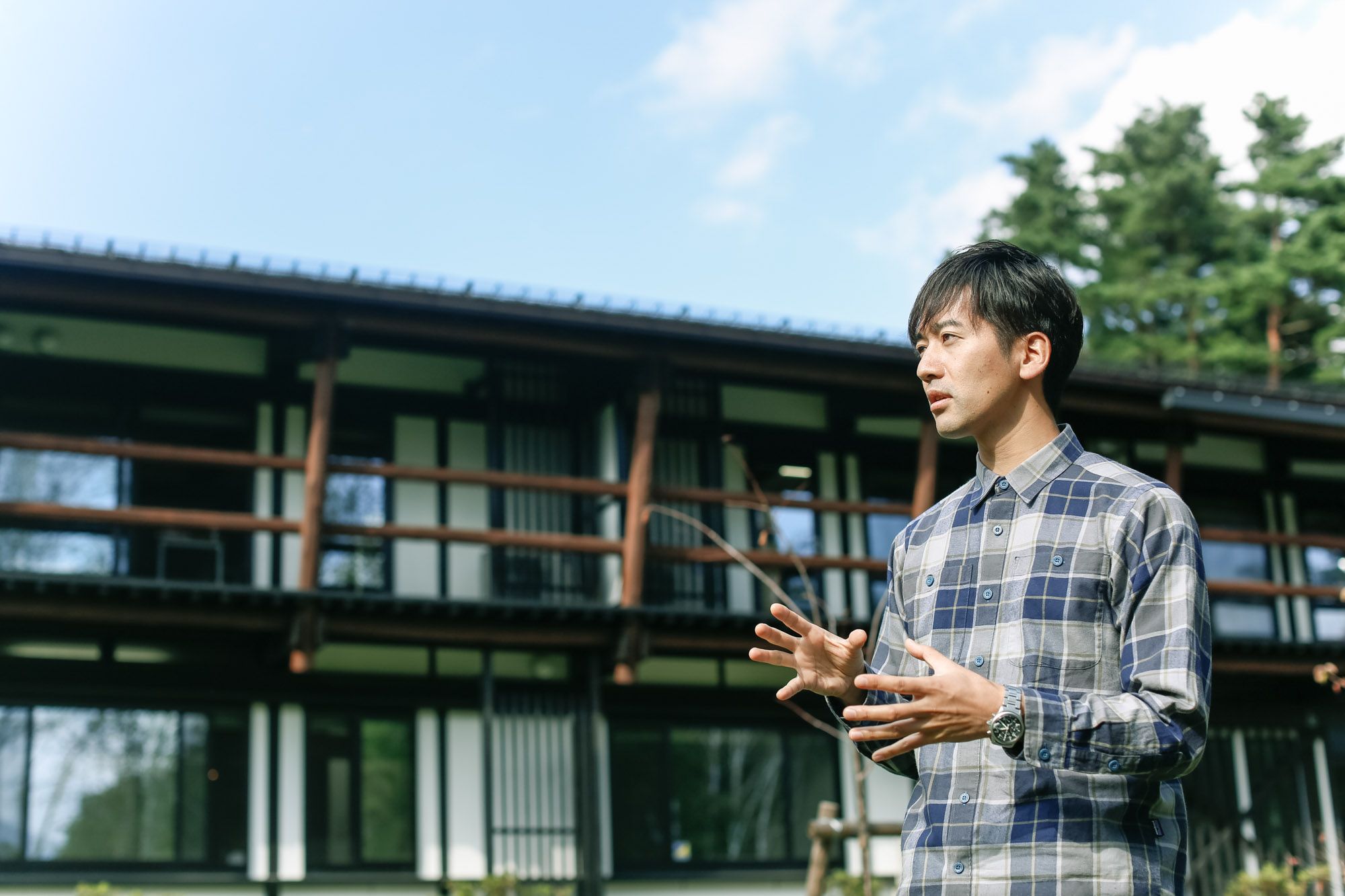
With the support of the Fujimi town government, Morino-Office was brought to life by Yoshio Tsuda and his teammates Ayaka Matsui and Yo Watanabe. Keep reading to discover how their partnership with the local government took shape.
➡️ Key Figures
- Opening year: 2015
- Size when they started: 1 coworking space
- Size today: 1 coworking space + 1 coliving space
➡️ A little tour around Morino-Office
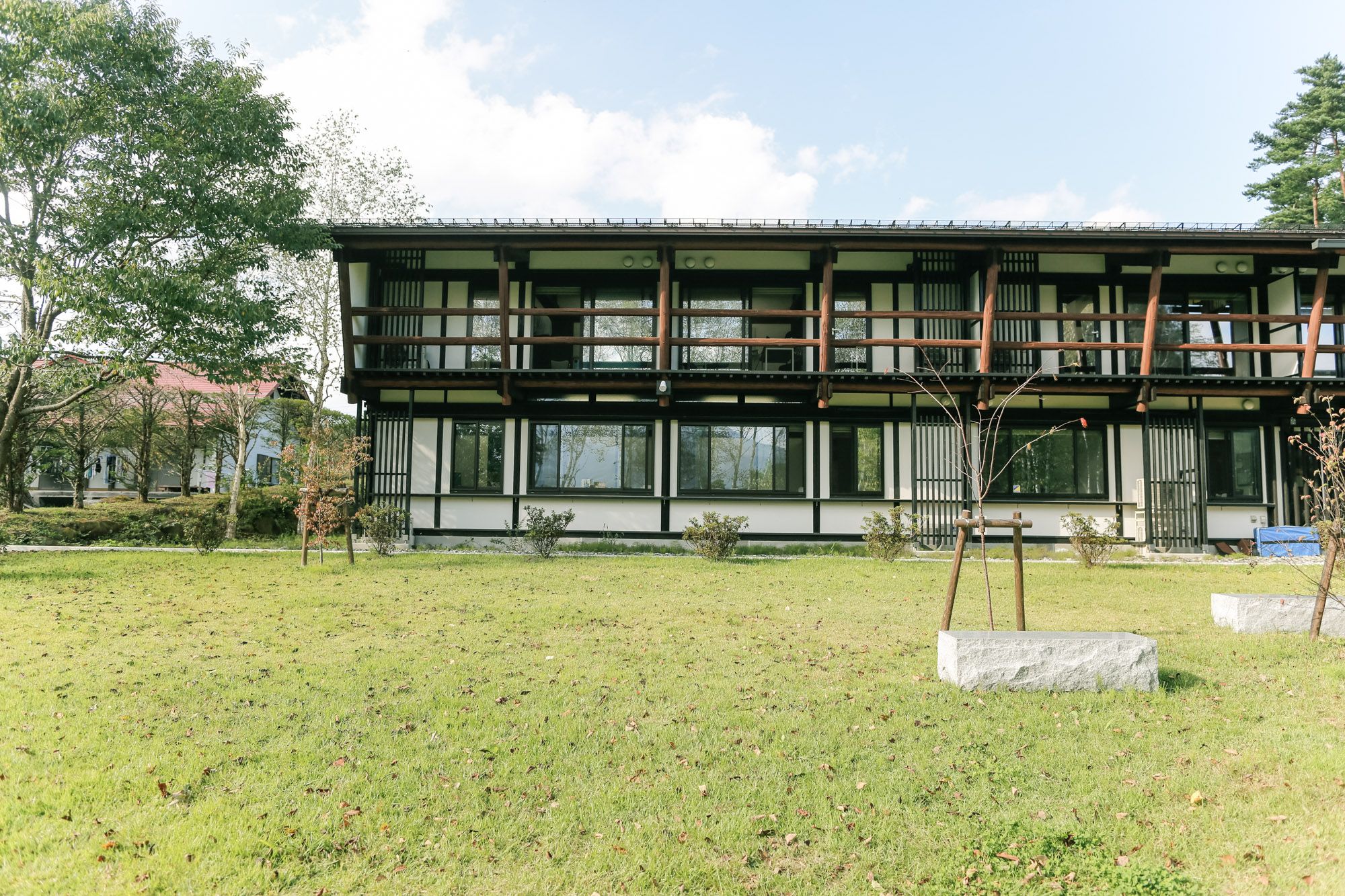
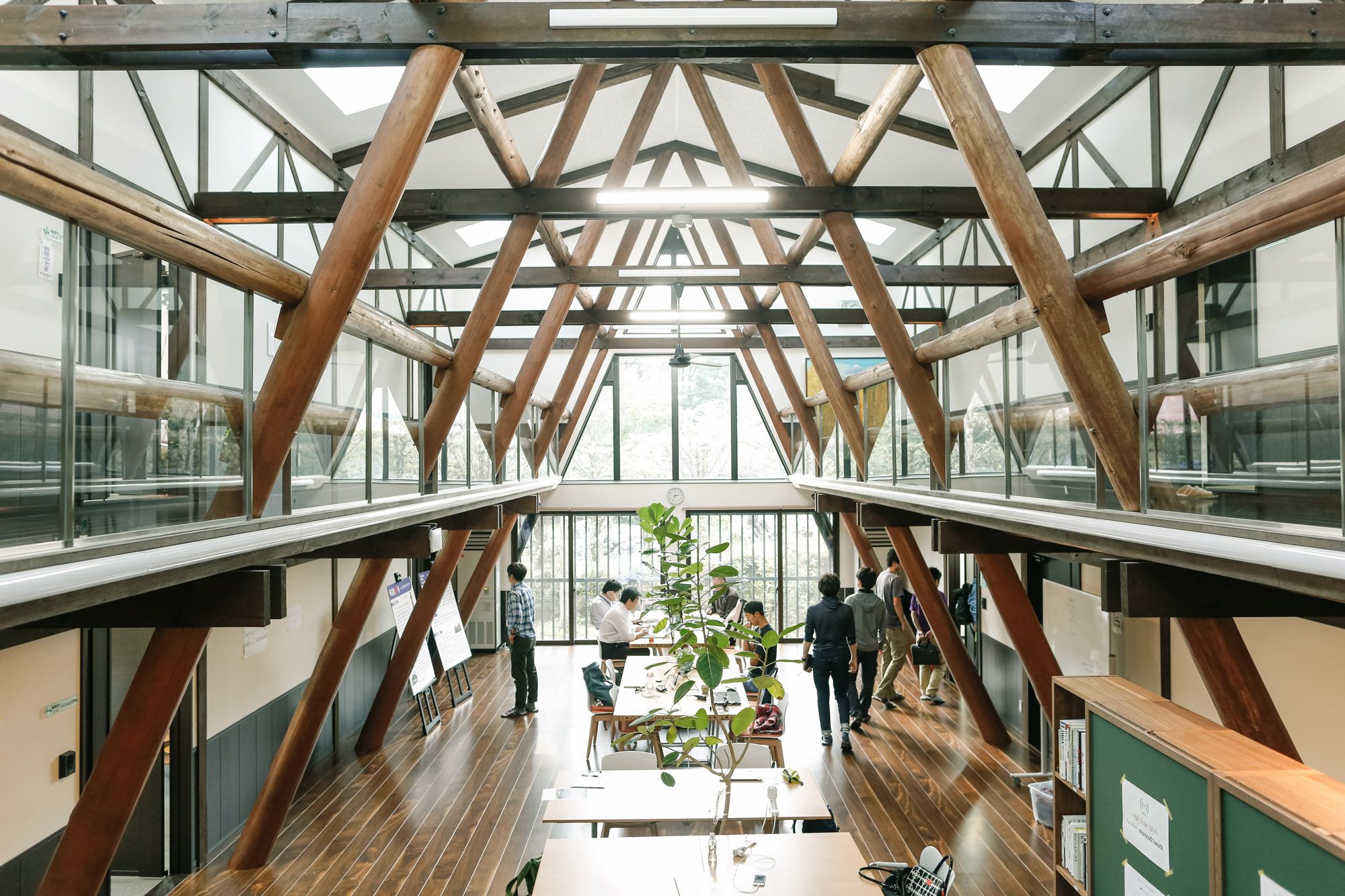
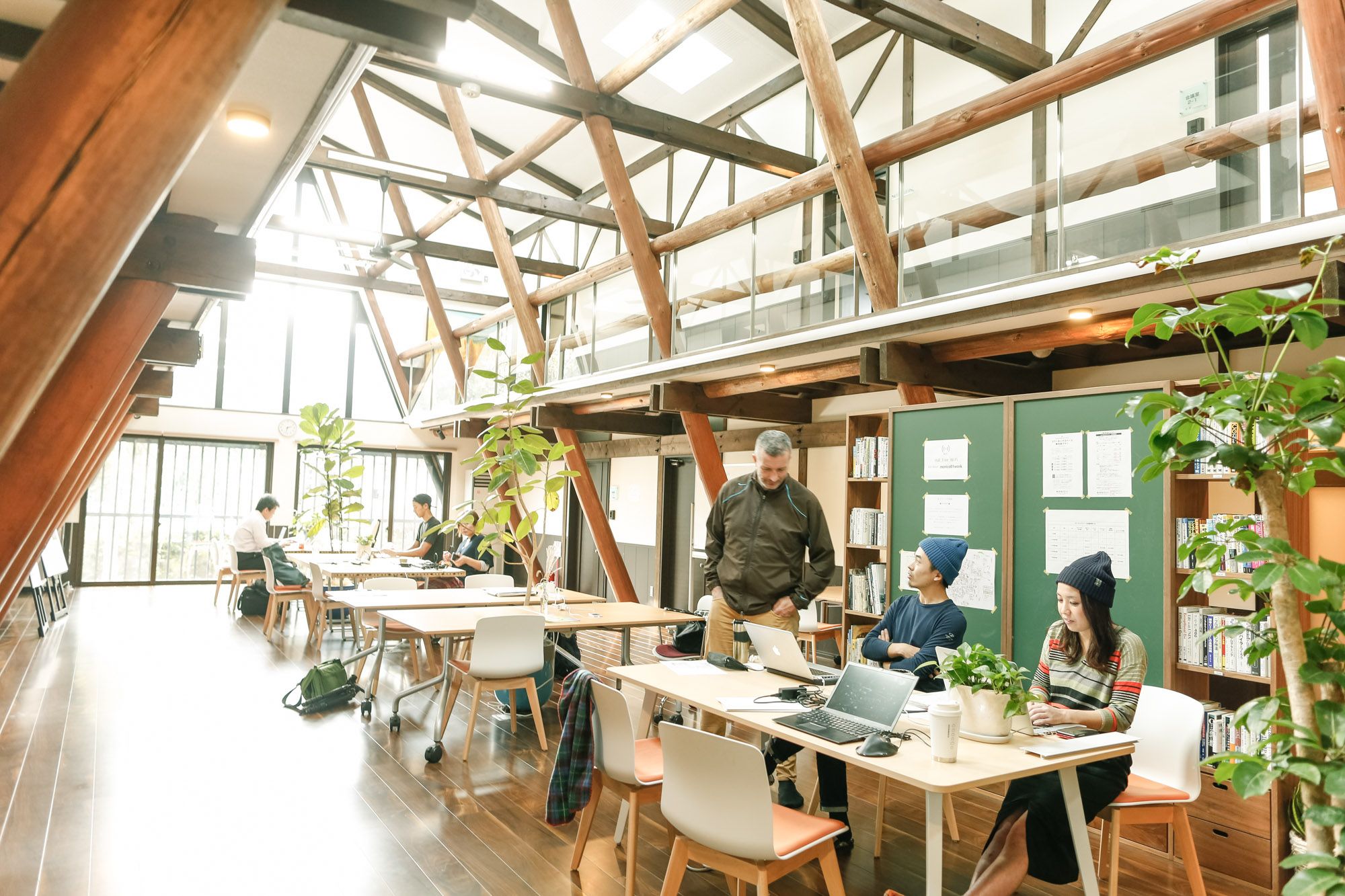
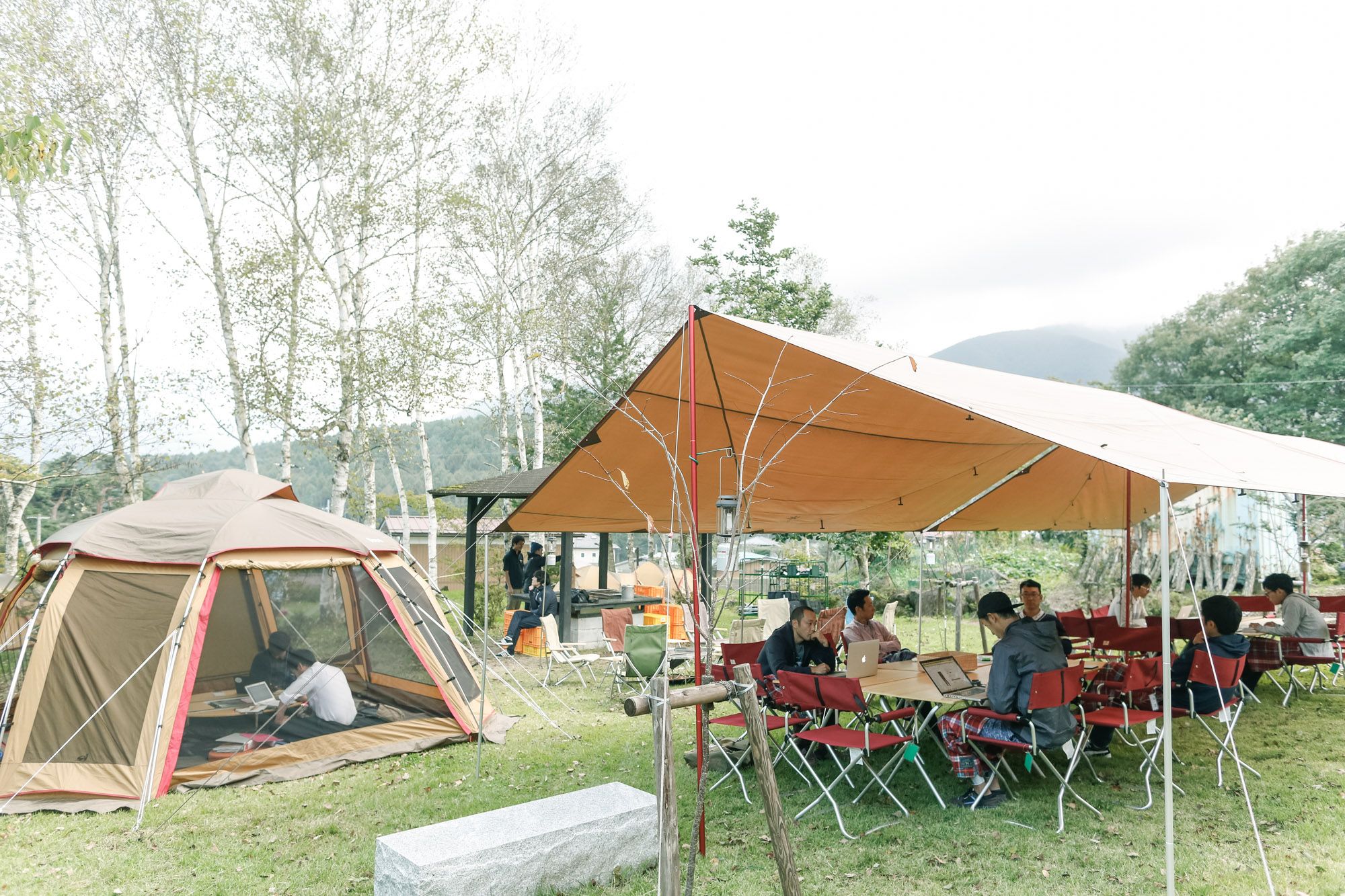
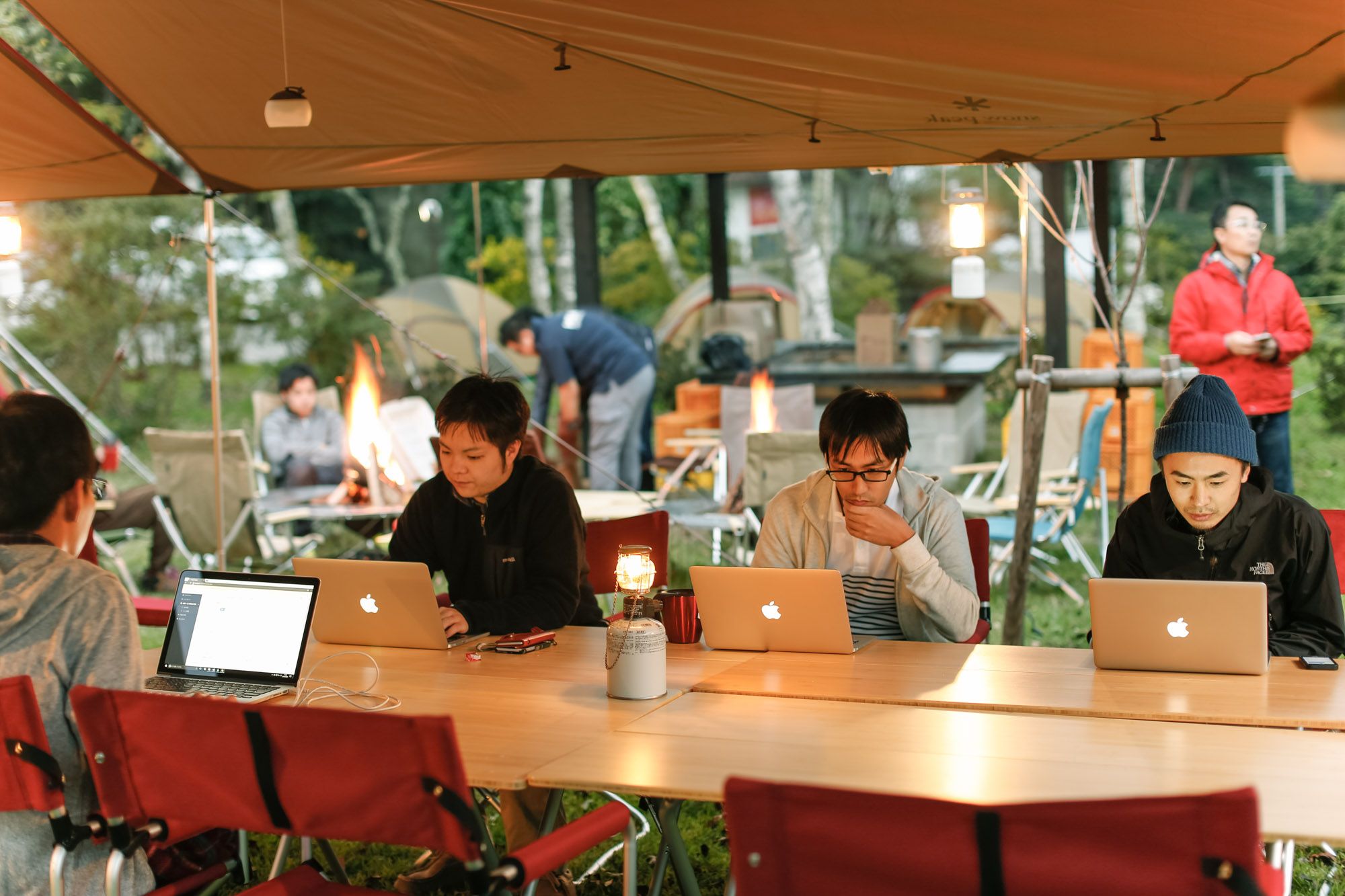
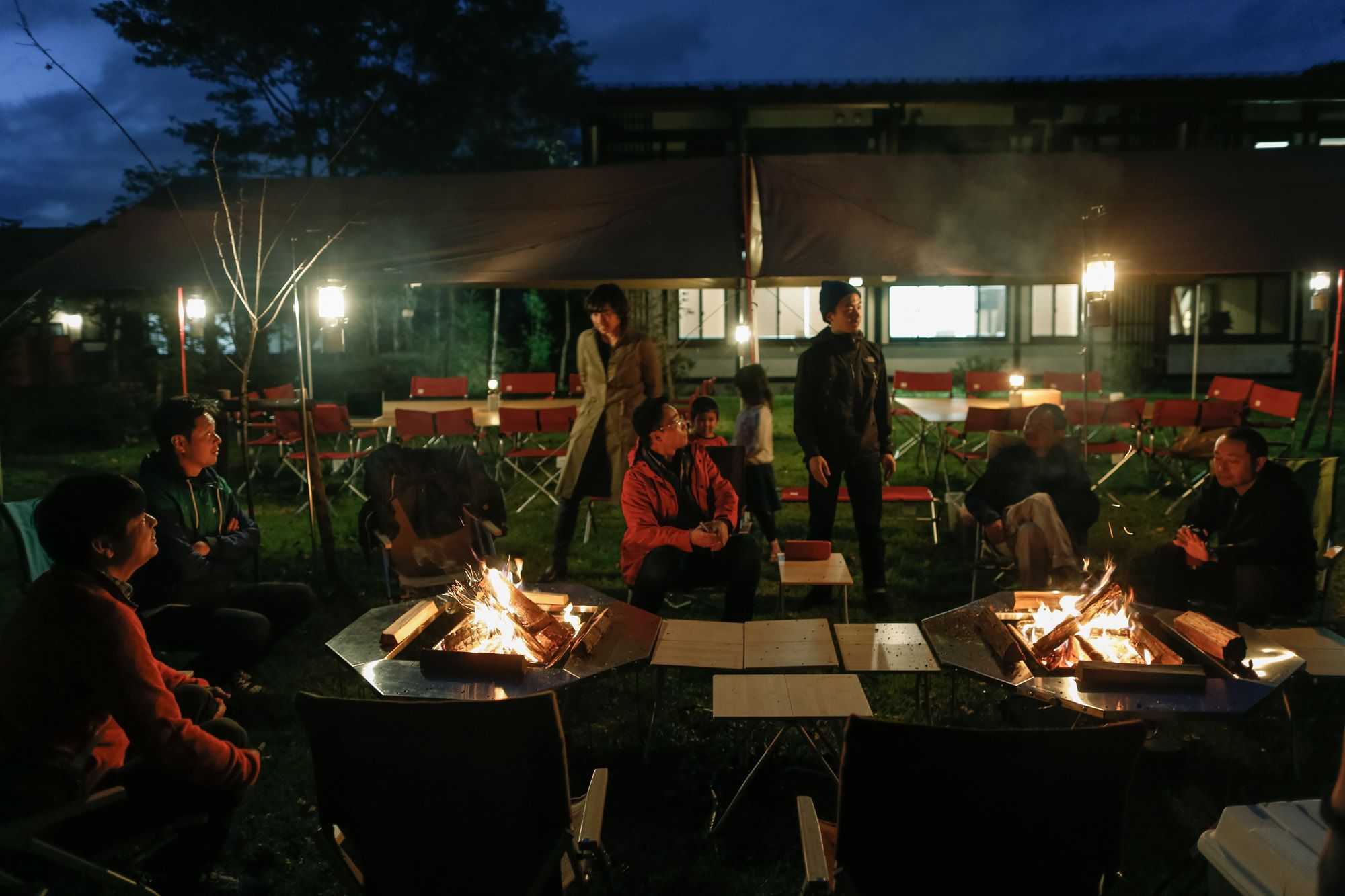
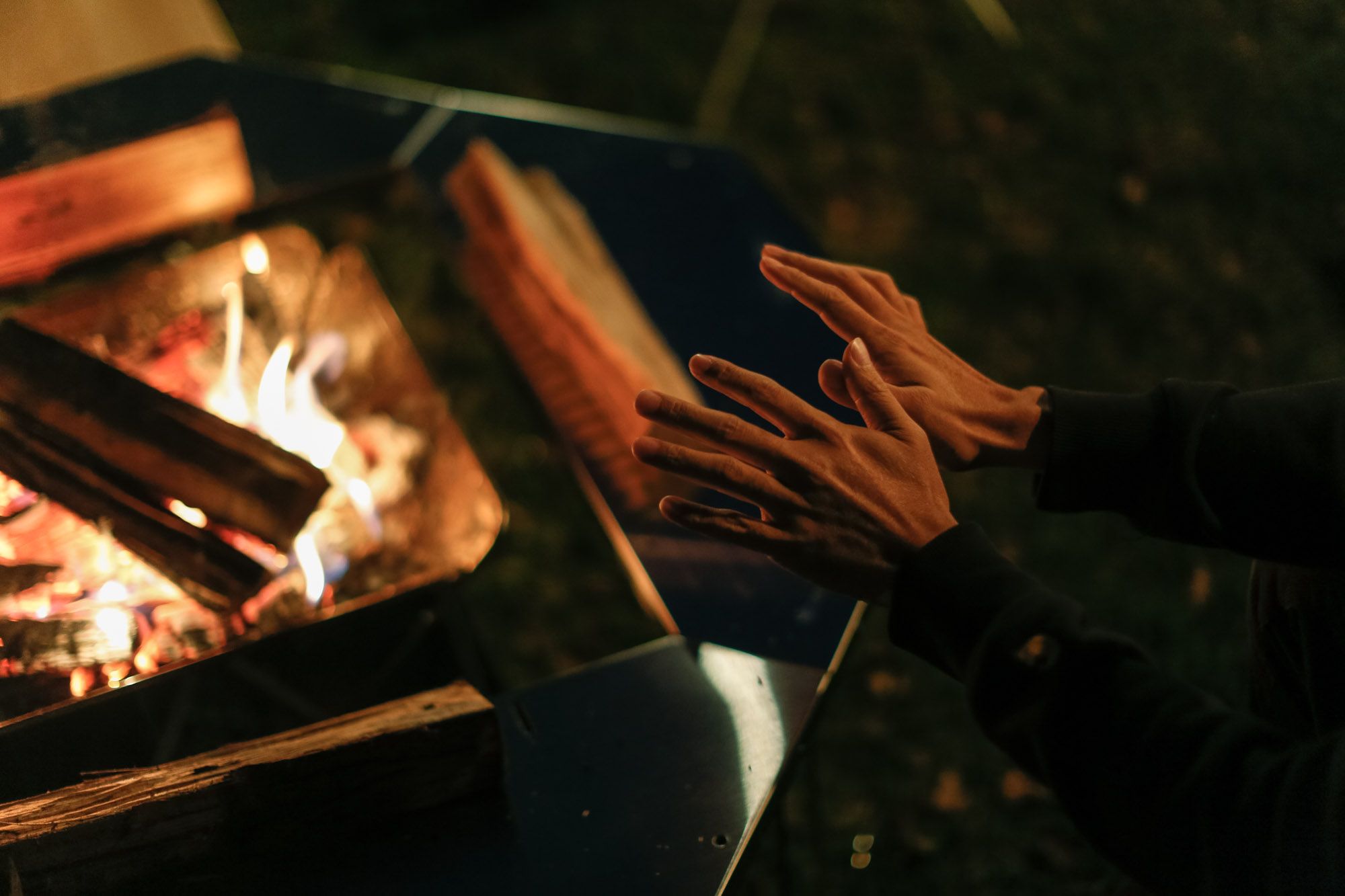
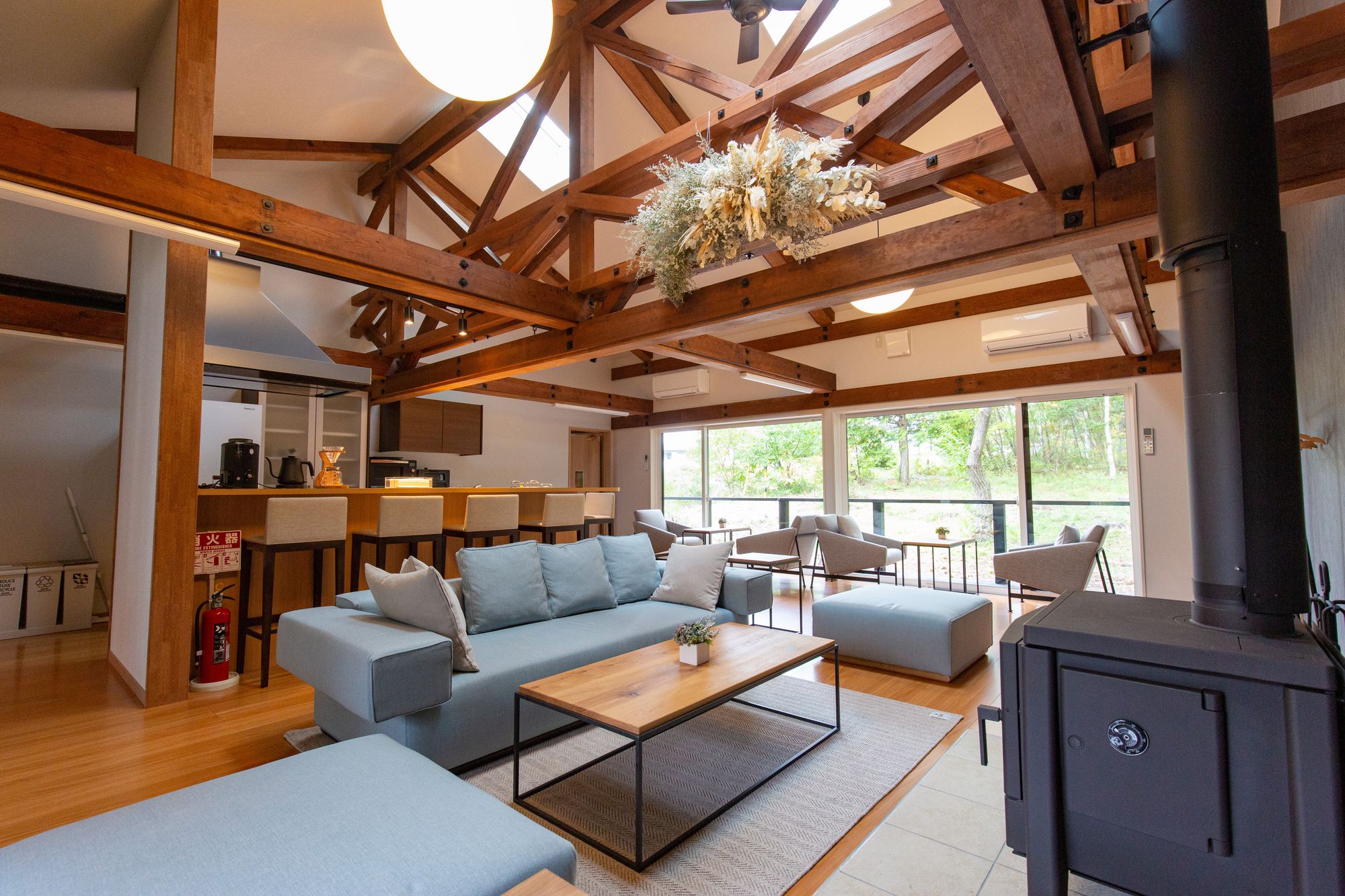
➡️ Behind-the-scenes
Things you didn't read in aw250cs
I wanted people to come to Fujimi because the population was decreasing year to year [...] I saw it as a huge opportunity to show people they could come and live here but still work in a Tokyo-centric job.
Yoshio Tsuda, Founder of Morino-Office
➡️ Morino-Office Today
As said earlier, it’s been 3 years since we were last with Yoshio in Japan. A pandemic + the impossibility of traveling to Japan made our plans to go back quite difficult to say the least. But, over the last 3 years, we’ve involved Yoshio in a few of our online events, including our online community launch of the book, which you can watch again here. In early December 2022 after reading that Yoshio was planning to open a second space in another part of Japan, I reconnected with him to ask if he would be keen to tell me more about all that had happened at Morino-Office over the past few months. Little did I imagine our conversation would go so deep and in such detail. Listening to Yoshio, I realized the pandemic was actually the push Morino-Office needed to show the world gravitating around him, that everything he had been preaching for the last 7 years about the future of work, was unraveling in front of their eyes. Now, it is your time to soak in all the learnings and updates Yoshio shared with me. Get ready to take some notes!
💫 Towards everything Morino-Office was brought to life for.
💬 I’d like to start by asking you: what’s new at Morino-Office since the last time we spoke?
Things have really changed for us since the book came out. First, 2020 was our five-year anniversary. When we started Morino-Office, we focused on bringing a new way of approaching work by offering a remote work solution with multi-habitation working in a rural area. That was all kind of new for Japanese society.
But in 2020, we shifted because we thought we had achieved our goal.
After 2020 we focused more on how we can work sustainably. This is why we started a project called Green Community, by means of working more responsibly with the environment that we live in. We changed how we operate the coworking space to do it in a more sustainable way.
We tackle the environmental issues of our local community and try to work on those issues with the people in the community.
And also like the local community as well, it was very little in the first year, but it's getting to be a little wider reaching than before. So yeah, that's the new challenge, and that's the new thing in the office right now.
💬 In our initial interview, you said: “We created this community in order to get away from the city-centric life to a more multi-habitation style of living.” I’d love for us to expand on a few things here. First, how did you convince people back when you started, which was in 2015, to move away from Tokyo?
Convincing was hard. I was by myself. But, my huge inspiration was the book The Shift: The Future of Work is Already Here by Lynda Gratton. After reading it, I just wanted to change my way of working and living. I used a lot of examples from her research and the book on how life will change by 2025, and how the way of work will change.
I had just moved to Fujimi back then and hadn’t started Morino-Office as a project. I was posting on Facebook and Instagram how I was traveling back and forth from Yokohama and Fujimi, explaining how I was doing work remotely, discussing with people the vision that I had for my way of working, and how I believed it would change everyone's lives or everyone's daily work.
💬 My second question related to your quote is, can you expand on this notion of “multi-habitation style of living”? What does it mean in the context of Morino-Office and Fujimi?
Well, back in 2014/2015, people thought that life was only in Tokyo. They didn't have in mind that you can work in Tokyo but live in a rural area. As I was starting to explain earlier in our conversation, I used to tell everyone that they’d be able to work remotely from their home without having to go to their office all the time. But that was an unbelievable thing in Japan.
That same year, the 80-year-old mayor of Fujimi started to think about ways of attracting people working in Tokyo, to live in Fujimi while doing remote work. That was a huge thing, but also a hard one.
Hard because Nagano (the province) wasn't that much of a choice for people to live in. It's about two and a half hours from Tokyo. But, I started doing remote work myself from Fujimi, and people around me thought that this was a game-changing idea. They saw you could go back and forth and work in Tokyo either virtually from Fujimi or physically if you decide to commute when you need it.
I wanted people to come to Fujimi because the population was decreasing year to year. There weren’t any decent job opportunities that would attract people to move here. There wasn't any choice. You had to quit your job to move away from the city and work in a local factory a farm, or a ski resort, and those are not well-paid jobs. I saw it as a huge opportunity to show people they could come and live here but still work in a Tokyo-centric job.
This shift in thinking was a key success in the multi-habitation style of living. It showed people they could live where they want, and work where they want.
💬 Japan is known for its rather “rigid” work structure. How have things evolved post-pandemic?
We still have a rigid work culture, but the pandemic has created a shift in our working culture. It has already shifted a lot. More people are quitting their jobs to work freelance because they love the lifestyle that comes with it. Looking at Morino-Office, people are moving away from Tokyo to work remotely. After two years, we're seeing those people take second jobs, which wasn't common at all before the pandemic.
💬 Has this shift in the work culture impacted life at Morino-Office and Fujimi in any way?
Before the pandemic, everyone here was a freelancer, and it was easier for them to work from anywhere. But post-pandemic, many people who come here are office workers and employees of larger companies.
At Morino-Office, we’ve always used the skill sets of the community to work on side projects together. When people working for larger companies started joining our community, we could not work with them on the local projects and client projects that we had at the Morino Office. They couldn’t do it.
The first year of the pandemic, I thought that the skill sets of our community had somehow decreased because of that. So I talked to them and I understood that they first had to process what was happening to their lives.
Today, things look very different. Yes, their way of working has changed. That being said, they are doing the same company job they had when they joined us, but on top of that, many members started working on side projects together with residents. The community is very diverse. Employees of companies have their own unique skills, which came as a nice addition to our collective skills.
💬 Coworking in rural and remote areas is becoming more and more in focus here in Europe and one question that’s often asked is, how do you create a viable business model around a coworking space located in a rather rural area? Do you have any take on this?
Remember when you and Dimitar came to Fujimi? We talked about business models around coworking spaces and I remember something Dimitar said that coworking, as a business model of just renting desks, is unprofitable or just a break-even business. I 100% agree with that.
We are sustainable because the town government is the owner of this project. They renovated the building to make it work for us. They are paying us to maintain and manage the community, to make more people move to our town, to Fujimi. That’s what benefits them. I rent part of the space to host our coworking space.
That kind of business model is, I think, one interesting way to have a sustainable place in a rural area and it benefits everyone involved in the project: the town, us, and the local community. Without the support of the town government paying us a fee, it would be much harder to make it sustainable.
💬 You said 2020 was your 5th anniversary, so it’s now been 7 years and I think they see the impact of your work with Morino-Office on the town.
Exactly. I think we are achieving their mission partly because the town has more people coming in. They have a wider range of jobs and projects than back in 2014. We're seeing a lot of achievements and changes. As long as there's a positive impact on the local community the town is willing to continue this project with us. It makes everyone around here happier.
💬 How do you see coworking in the city differ from coworking in the countryside?
Building a community is probably the most different and most challenging thing.
Morino-Office has a really rich community right now, although we are living in an area where there are only 14,000 people and there is not that much money if you compare it to Tokyo. But because many of us come from somewhere else, we like to find similarities and relativities within ourselves and the way we live. After finishing our day at the coworking space, we take our car to go to the supermarket and we bump into our members doing the same thing.
You don't see that in Tokyo because when you go to a coworking space there, you just hop on the train after your day and go back to the place you live which is usually not the same area, so you don’t see the same people. There is a bigger separation between work life and personal life there.
Here, it’s really easy to get to know each other. Our relationships are tighter.
💬 How do you educate the locals about what coworking is?
It was so difficult at first because the local people had never heard of that word in 2014. They never heard of remote working or anything like that.
We spent time sharing our vision about how work will change. We went around asking people what issues they had within their work or their daily lives. We thought about how we could tackle these problems or how we could solve these problems by connecting with other people who we know in the city.
For example, there was one farmer who wanted to have his e-commerce site, where he could sell his vegetables. He was about 65 and understood nothing about building websites, but he knew he could sell his vegetables online because they are really good. He was sick and tired of going to the big city supermarket store to try to sell them.
We connected him to one of our members, who was a web designer and had just moved in from the city. Six months later, the farmer had his e-commerce website and now he is really selling not just vegetables but also candies he makes himself.
One thing you need to know is that in rural areas, rumors spread like wildfire, faster than on Facebook. So when he told another guy that he made his e-commerce with the help of our member in Morino-Office, other people started showing up to our doors saying “I don't understand coworking space, but I heard you can help us do a website”. We welcomed them and connected them to members who had the skills they were looking for.
We kept doing that for quite some time, and after three years people understood what we were and about coworking. They say “It's the gathering of people with different kinds of skills.”
💬 What’s missing in Japan to make spaces like Morino-Office more in demand?
In the bigger cities in Japan, the infrastructure is much better than in the rural areas. So they have great Wi-Fi and great phone booths. But I see the community part is lagging compared to what we have. I understand it's more difficult for them to create community-driven spaces because their members don’t understand it fully yet.
And that’s where change needs to happen.
We have, at Morino-Office, a really good environment, we are surrounded by nature, and the relationships we have with others who live around here are long-lasting ones. Until people experience it, they can’t understand it.
But, there's an interesting movement going on, an eight-year plan created by our town government. They're making a new eight-year plan for our town, and they're inviting people who moved from the city recently to join the conversation and share their opinions on how we can keep on making our town a better place.
We contribute to making Fujimi a better place with a project of our own called Ignite. This year is the third year that we are running it. 13 projects were born during those 3 years and while some were not sustainable, some had a huge impact on the town, which means our local government is now supporting it and they became co-members of the project.
➡️ Reflections on building Morino-Office
💬 What has been your biggest learning out of bringing to life AND growing Morino-Office?
I was an office worker in a big company back then in 2014 and I only had one real connection within our company. My life changed after moving away from Tokyo and Yokohama to start this coworking space and the biggest change for me was that I connected with other people on a deeper level.
Connecting the others and helping each other is the most valuable thing in both my working life and my personal life. To expand myself, my skill sets, and what I can do by teaming up with others. That's probably unusual in the Japanese working society.
💬 What would be your best advice to someone thinking about opening a coworking space?
Two things.
One, think about how you can help other people's lives at work.
Two, always communicate with the local people who don't use your coworking space. Have some kind of relationship and always think about how you can support them, even if they're not your customers or users. You and your community belong to that area, so you must have some back-and-forth on impact.
💬 If you could chat with coworking operators now, what would you like to ask them?

💬 And if you could chat with coworking members?
What's your biggest reason for using the space you are a part of?
💬 Last but not least, what’s your biggest dream for Morino-Office?
I want to make it like a shrine.
Shrines are a common thing for us. We’ve always had them. We're not so religious, but whenever you go to a shrine, your mind is relaxed.
Morino-Office is not a place you need to use every day. Some people who used to come to Morino-Office every day, after three or four years, only come once a week or twice a month. But that's still good because they're really connected to us.
Every time they come, we chat and we keep on developing our relationship. I think for them Morino-Office is like a shrine that you don't really use heavily but every time you come to this place you know other people, your mind will be relaxed and maybe you get inspiration from others about how you want to live your life or how you want to work.
That’s it for 2022!
Thanks for thoroughly reading our Digital52 stories every week, we’ll meet again next week for a new year, new beginnings, and a new wave of fascinating coworking stories!
Join us on Discord: https://discord.gg/rm45JXJw
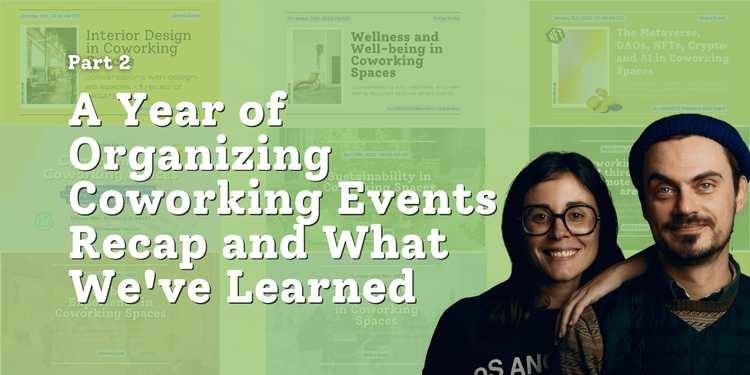




Member discussion